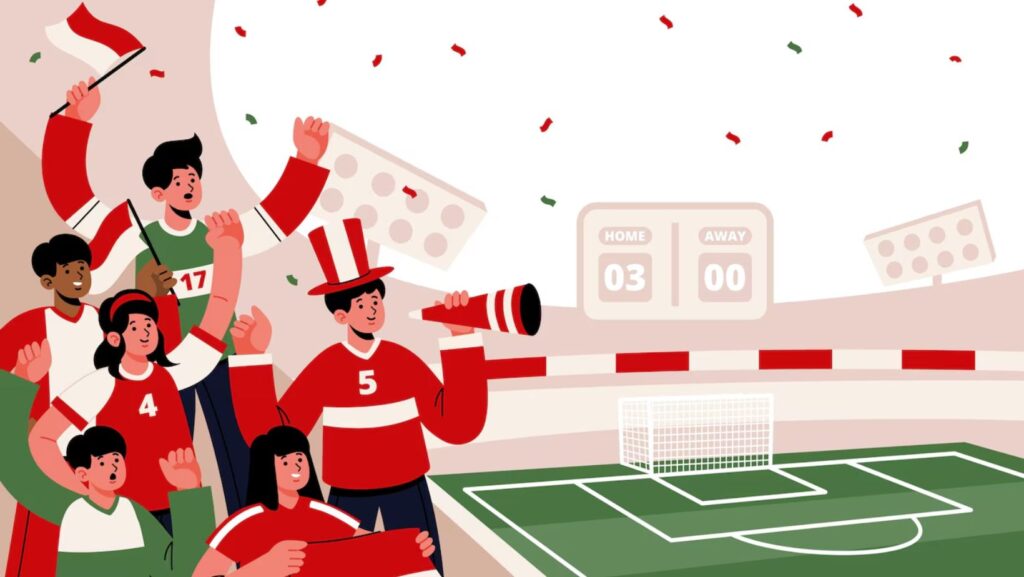
Sports fans dedicate themselves to cheering and enduring losses together without losing faith as their teams remain championshipless. Sports fans return for deeper emotional relationships that form between them and their teams beyond any potential winning possibilities. Fan loyalty science demonstrates strong psychological elements that come into action, particularly when fans remain committed to a team while it continues to lose games.
Emotional Bonding Begins Early
The collection of team memories links directly to significant events, including birthday victories and games spent with grandparents. Fans develop stronger bonds through this connecting relationship and eventually find new engagement methods, such as through the betting app, which increases their proximity to the game. Game interest increases when users activate betting apps because these applications deliver customized play and slightly elevated betting risks.
Over time, the connection deepens. Sports fans welcome their emotions of excitement and sadness about the game outcomes without considering who wins or loses. Viewing sports produces dual benefits through entertainment and traditional, familiar patterns that comfort spectators. A team’s losing streak does not damage fan unity because these poor performances build the collective narrative that fans proudly display to new community members.
Identity and Belonging
Being a fan becomes about representing identity while communicating membership to the community, despite team performance. The fan base maintains its support for unsuccessful teams because of these three significant alignments:
- People identify with others by wearing team colors because they help them belong to their tribal community.
- An accurate indication of dedication emerges from staying loyal during challenging times.
- Fans endure defeats because their ultimate victory will have a payoff of pure delight.
Treading inside a team mindset allows people to establish a powerful connection embedded within their core identity.
How the Brain Processes Loyalty
Loyalty isn’t just emotional—it’s biological. Winnings alone fail to trigger brain activation, while possibilities within the human mind create a reaction. Even after consistent failures, your hope system becomes active.

The habit of checking Melbet updates becomes routine because they maintain fans’ hope with statistics, highlight videos, and memorable moments that sustain their belief. Human neurological development responds this way because it needs uncertainty to survive.
Dopamine and Hope
The release of dopamine in the brain occurs during team near-victories, in the same way it happens from slot machines near-jackpots. What produces excitement in sports is not winning the game but the possibility of winning. A goal scored during the 89th minute, which makes a draw, sends massive reward signals to the brain. This neurological confirmation strengthens the belief that victory will occur in the future.
The brain of devoted spectators uses memories and positive thoughts to approach each season as if it were their first time. Sports psychologists identify the phenomenon as “anticipatory reward.” When humans gamble, there is the same experience at play where deficits produce discomfort, yet optimism about total triumph makes bettors continue participating.
Cognitive Dissonance
Fans struggle to balance their emotional team backing against evident losing outcomes. The brain experiences cognitive dissonance as intense tension, which it detests. Instead of walking away from their team, fans commonly shift focus by claiming reconstruction is underway, blaming referees for their losses, or promising the next season will belong to their squad. The rewiring process protects the team’s emotional support.
Scientific research demonstrates that individuals become stronger loyalists when they invest in any aspect, including time and emotions, even if these investments result in unfavorable outcomes. People who bet must understand this concept because it teaches them that bettors follow predetermined stories rather than actual success outcomes.
Loyalty as a Social Signal
Committing to your beliefs earns respect and strength from society when many others frequently switch allegiances. A sustained increase in present burdens makes a more profound impression on others that your loyalty is authentic.
The specific combination of pubs, stadiums, and forums generates recognition toward supporters who choose to display their team colors. The tribal community honors individuals with strong hearts above everything else, disregarding winning trophies. The betting community monitors fan support for teams because it helps identify which clubs attract betting funds. Your ability to read emotional trends from an odds-making standpoint will increase when you learn to identify loyalty patterns before games.
Why Loyalty Still Wins
People who follow teams that fail display deeply rooted psychological and social wiring, which shapes their supporter behavior patterns. Gamblers gain a strategic betting advantage from understanding fan behavior regarding unsuccessful teams because they must forecast emotional responses during sports matches. The unpredictable conditions of our world allow loyal behavior to function as both supporters’ and bettors’ trustworthy navigation system during both activities.













